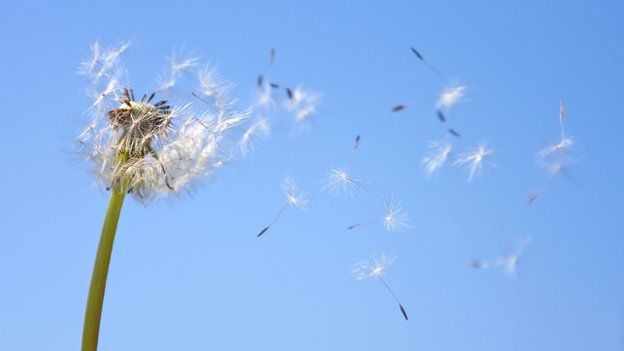Hay fever 'bar to university places'
- Published

The impact of hay fever at exam time could be harmful enough to mean that some students might miss out on a university place, say researchers.
A study in Norway has examined the relationship between pollen levels, hay fever and exam performance.
It suggests rising pollen levels are linked to a decrease in results for hay fever sufferers.
Report author Simon Sobstad Bensnes said students could be "unfairly barred" from getting into university.
The study, from the Norwegian University of Science and Technology, examined the impact on hay fever sufferers of taking exams at a time of year when pollen levels are higher.
Bad timing
Using the results of public exams in Norway over three years, researchers found that on days with high pollen levels exam performance was consistently lower.
A rise in pollen levels was linked to a standard deviation of 2.5% below what might have been expected.
Assuming students without hay fever were not affected, this suggested that for students with an allergic reaction there was a standard deviation of 10% below what might have been expected.
Mr Bensnes says that in terms of exam grades, it represented a 3% decrease for pupils with hay fever.
The report, presented at the European Economic Association conference in Mannheim in Germany, says hay fever sufferers could be missing out on the grades needed for university and for jobs.
"Increases in pollen counts can temporarily reduce cognitive abilities for allergic students, who will score worse relative to their peers on high stake exams, and consequently be at a disadvantage when competing for jobs or higher education," says the report.
The study says that the negative impact shown in exam results would be likely to apply to other settings, such as the workplace, where it could lower productivity.
About one in five people are estimated to suffer from hay fever - and the study says that this could be higher among young people, with suggestions that a quarter of young people in Norway are allergic to some extent.
In England's exam system, pupils who have had serious problems with hay fever on an exam day could ask for this to be taken into account by examiners.
The report author says it raises questions about holding exams in the spring and the early summer, when sufferers are most likely to be affected.
"Holding high-stakes exams during pollen season has a large negative effect on allergic students, who are subsequently unfairly barred from enrolling in the most prestigious universities," says Mr Bensnes.